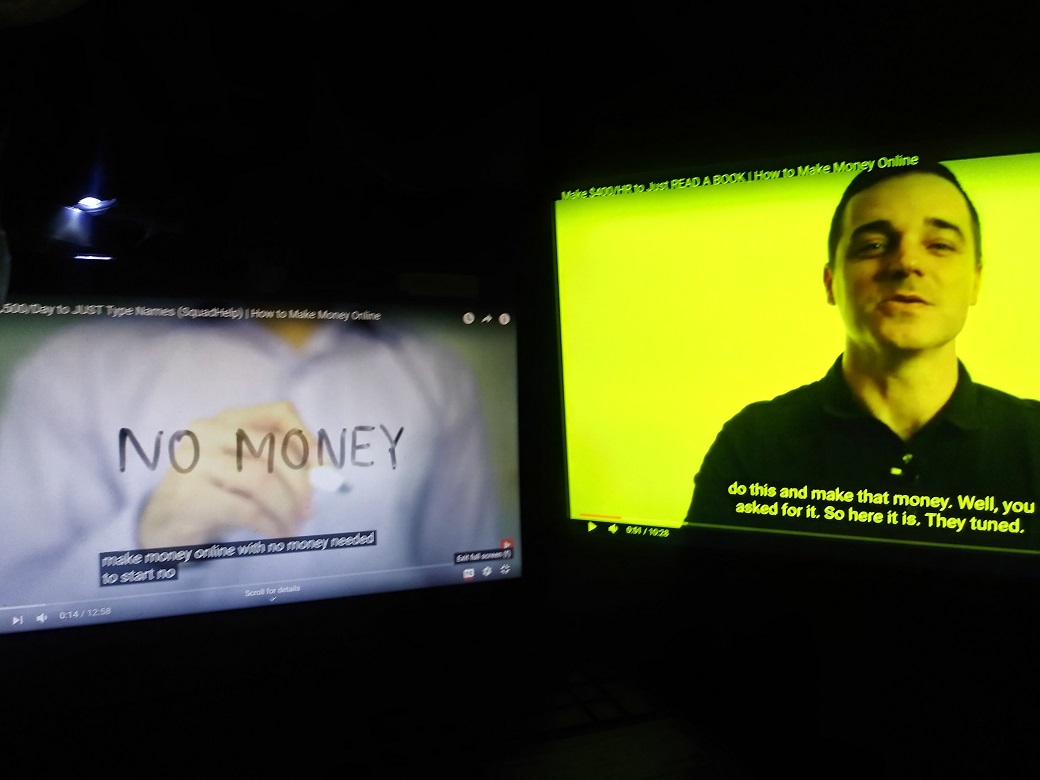It takes all of 10 seconds to identify Cassidy Diamond, the ostentatious “rookie lawyer” of Search Party’s spectacularly dark third season. Brought to life by Shalita Grant, the Tony-nominated actress from Vanya and Sonia and Masha and Spike, Cassidy meets her client, the very guilty murderer Dory Sief (Alia Shawkat), sporting a too-short black-and-white tweed dress, black leather gloves, and Kardashian-level vocal fry. “Dory Sief, Cassidy Diamond,” she purrs, tossing out a theatrical flip of the wrist for Dory to shake. “And it’s an honor to call myself your lawyer.”
Since its debut in 2016, Search Party has held an unflinching mirror to some of the most intimate issues millennials face: insecurity, displacement, and the desperate need to be remembered for something. Cassidy, a new addition to this cast of self-absorbed characters, fits right in as a Black lawyer who lacks self-awareness but knows this much is true: She needs to go above and beyond to prove herself. “She means everything and she’s trying really hard,” Grant tells ELLE.com. “That’s what makes her so fucking funny.”
Black women often feel like everything we do must be amplified, that our presence must be louder than everyone else in order to be seen at all. As a 31-year-old who only recently vowed to put her identity and desires first, Grant recognized Cassidy’s attempts to be taken seriously in an industry and world that all but dismiss her. That’s the beauty of Grant’s portrayal—Cassidy is flailing in grandiose fashion, yet hell bent on faking it until she makes it. She’s relatable to so many women, especially Black women, desperate for the attention they’re just not getting. It’s why it’s so easy to laugh when she practically does an interpretive dance to make her point in the courtroom—it’s funny because it’s true. “As Black women, we’ve been invisible,” Grant says. “When you have a job, when you have love for yourself, it’s turning you on to your visibility as a Black woman. For Cassidy, it’s this case. Visibility means you’re being taken seriously, [but] her brand of visibility will make you invisible. That’s the paradox.”
The actress, who’s enjoying quarantine at home “smoking weed and having a wonderful time working on my skills” with Photoshop and taking photos on her Canon, talks to ELLE about finding gratitude, her “absolute commitment to the upside,” and embracing her celebrity after confronting a difficult past and her own impostor syndrome.
What attracted you to Cassidy Diamond?
The character description said they wanted a vocal fry. I immediately jumped to a judgment: Valley white girl, the stereotype. I had to launch into compassion so I went to Mother Google [to see] why people would want to talk like this. Everybody hates it, so what is the psychology behind it? It is a byproduct of the person trying to make their pitch lower than it actually is. Why would a woman want to pitch her voice down? Well, sexism in the workplace. There’s this story that women should be paid less and really shouldn’t be there, and one of the myriad reasons is our voices. [She perks up her voice for effect] They’re so high! It’s so unprofessional! These millennial women absorbed that bias and pitched their voices lower to subconsciously try to get the bag. When I got that information, it was like, how else could I make her as real as possible? I did a couple clicks [with my mouth], a couple pops [of my hip] to [physically] show she knows who she is. We can put her where she is and differentiate that she’s fucking weird.
This content is imported from YouTube. You may be able to find the same content in another format, or you may be able to find more information, at their web site.
But she’s also recognizable.
Because she’s trying. What frustrates me most about the last 10 or so years [for] women in comedy [is that] a lot of it is really transparent copies of male tropes. It doesn’t feel realistic to me and the women I work with and went to school with; we’re trying our damnedest and we’re all struggling with that fucking imposter syndrome. We’re fighting the same battle. What I really wanted to get across with my characterization of Cassidy was that she’s in earnest. She means everything and she’s trying really hard. That’s what makes her so fucking funny. Too much makeup. Her clothes are too tight. It’s not appropriate for this setting. And she’s like, this is professional to me. I’m showing up.
Which part of your portrayal helped hone in on who she was?
The thing that has been endearing, but also a real stumbling block in my life, is my absolute commitment to the upside. I’m going to be happy. Yeah, some things are wildly inappropriate—like, I am now in my 30s learning the capacity to give up on people and situations. Cassidy hasn’t learned that. What makes her special is she doesn’t want to give up on people and she should. Dory is guilty as fuck, and even though she knows that, [she’s like], I’m going to see this through to the end. It’s so misguided.
There’s a lot darkness folded into the comedy, including murder and narcissism. What was important for you to convey as you struck that balance?
The narcissism for Cassidy is in her presentation. I don’t think she’s narcissistic in the classic sense, but she’s hyper aware of how she presents, which is so fucking Black, right? The thing I really wanted to do [was] make [her] as human and relatable as possible. There’s a reason she’s presenting the way she is and it’s super specific for her. Even if you’re not clear about a Black woman’s experience—racism in the workplace, colorism—you know there’s something very real about what’s happening with her and why she’s making these choices.
The series also interrogates the millennial relationship between fame and identity. As a millennial celebrity, how do you identify with that?
This is the shit I’m working on. Let’s talk December 2018. I had just left NCIS and took a couple months to heal. [Grant has spoken about her traumatizing experience working on NCIS: New Orleans and launched a haircare line, Four Naturals, in response to her treatment there.] I did trauma therapy and different modes of healing. I did Santa Clarita Diet then Search Party. I went to Thailand for a month because I was still really fucked up and not happy. I thought my biggest issue was how terribly my job situation had deteriorated and how much damage and trauma I experienced, but I was still so unhappy. I needed some perspective. When I got back from Thailand, I was like, I’m going to own my desires, which is an issue I think a lot of millennials struggle with.
My imposter syndrome comes from the fact that this is not my world. My mom was 18 and my dad was 17 when they had me. They were never married. They went on to be with other people. I became the oldest of nine children, half step and adopted. My grandma has owned a hair salon since before I was born, so I came up in the fucking hair salon, washing hair. My mom is an ex-con, a felon. When she got out, we were moving around. I went to six different elementary schools and two different high schools in two different states. I had so much to heal from by the time I was 17. Then I was at Juilliard. My 20s were all about undoing and unlearning.
One of the things that came to the fore in 2019 was [the question] at the bottom of every desire I allowed myself to express: Who do you think you are? When I had taken a step back, I discovered all the ways I was responsible for not getting what I wanted. A lot of that was my inability to give up on people; I stuck things out way longer than I should have: representation, business managers, friendships, relationships. So I was like, I’m going to change my life. Then everything fell apart. [For] Search Party, I had this meeting at TBS [the series’ previous network] and was feeling so good, then they were like, We actually don’t know if we’re airing it or when we’re airing it. It was originally scheduled to come out spring of 2019. When that didn’t happen, I was beyond disappointed. I said, I’m clear about what I want, but the universe was like, not yet.
So I [took] this time [to] clean house and heal myself. Part of the healing is going into the dark: You have to go into your shadow so you can discover yourself and all your subconscious programming. First it was physical: my hair. I still had the damage from NCIS—this bald spot in the center of my head. I’m still wildly uncomfortable with wearing my natural hair. There was so much undoing that needed to happen. [So] I discovered my product for afros and created that brand. Then going into 2020, we have a motherfucking pandemic.
This content is imported from Instagram. You may be able to find the same content in another format, or you may be able to find more information, at their web site.
Seriously, 2020 has been its own nightmare.
I say that with a smile because I came into 2020 and I was like, you know what? I tried; 2019 was such a dark night of the soul that I was like, I got this. I ain’t got shit to be afraid of now. So when the pandemic happened, it was another opportunity to find joy and flowers and brightness and live. As a millennial who is trying to traverse this—the internet, fame, the visibility, all of that—I had to own the fact that this is what I want. I was operating without the awareness. I’m doing all the shit, but my attitude fucking sucked—the lack of gratitude and seeing the beauty in the struggle and the ways I was holding myself back, not responding to fans when they were fucking commenting. Like, what the fuck? You tell those people thank you because this is what you want, and these are the people that are going to get you what you want. Why are you sabotaging yourself? It’s making these subtle changes to get in line.
When everything fell apart and I had removed all the entitled people from my life, I was just left with me. Now I don’t have people in my life who are totally unaware of themselves and afraid of my life and me shining my light into them. All I ever want is for the people around me to fucking shine. We’re all fucking stars.
This content is created and maintained by a third party, and imported onto this page to help users provide their email addresses. You may be able to find more information about this and similar content at piano.io
This commenting section is created and maintained by a third party, and imported onto this page. You may be able to find more information on their web site.














